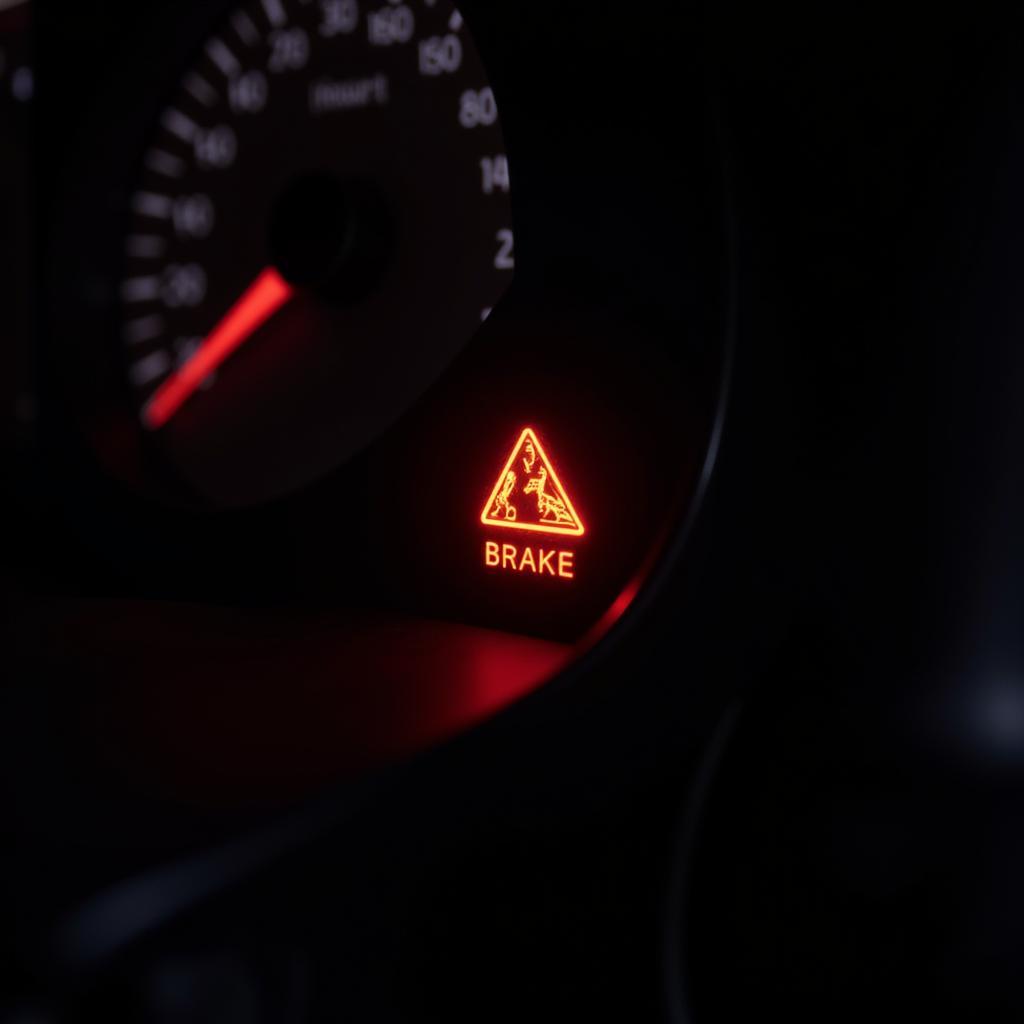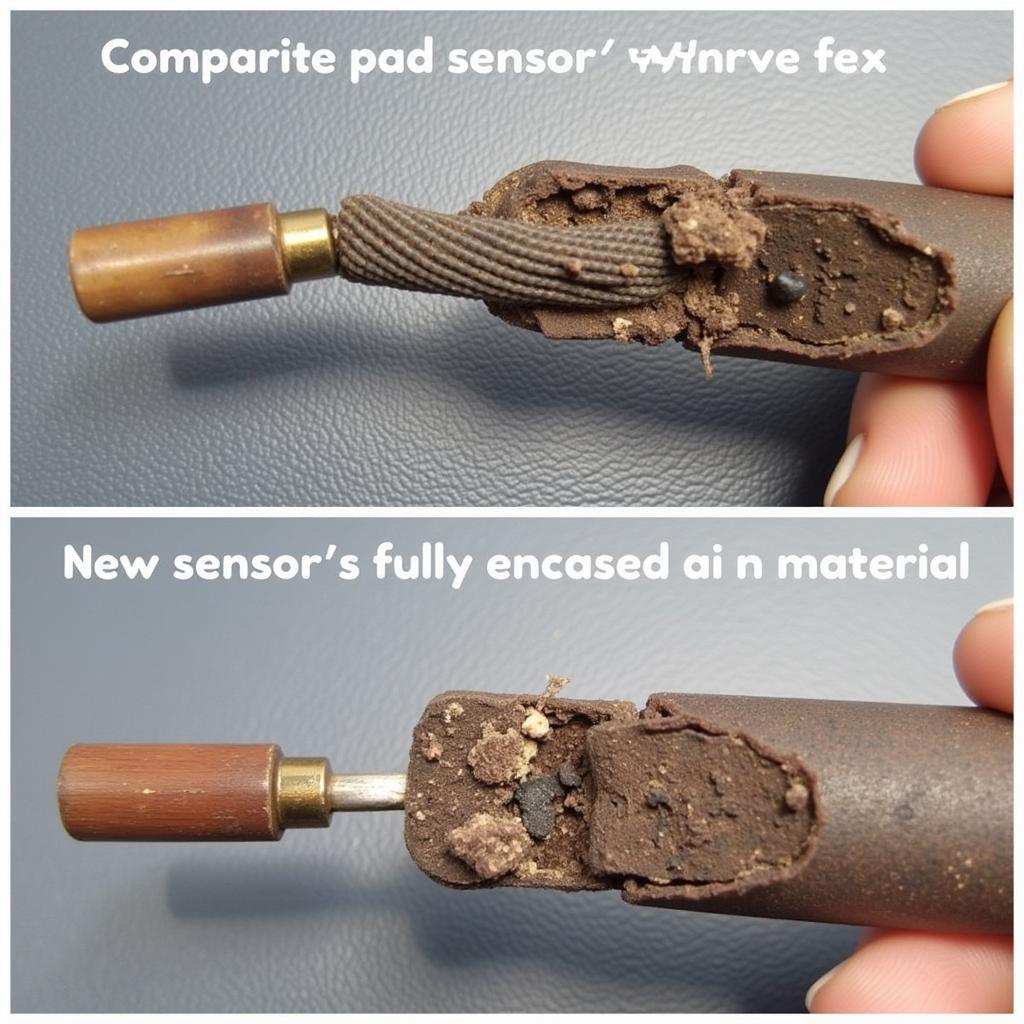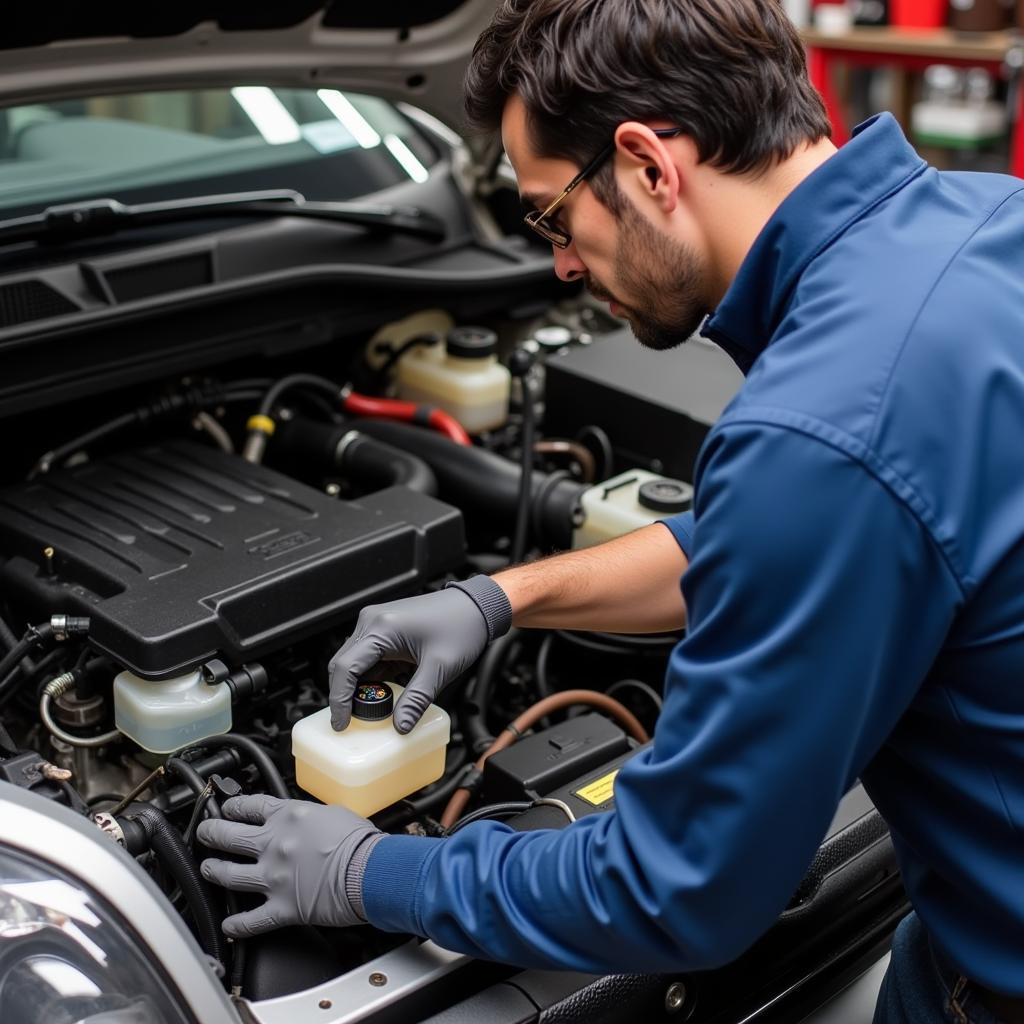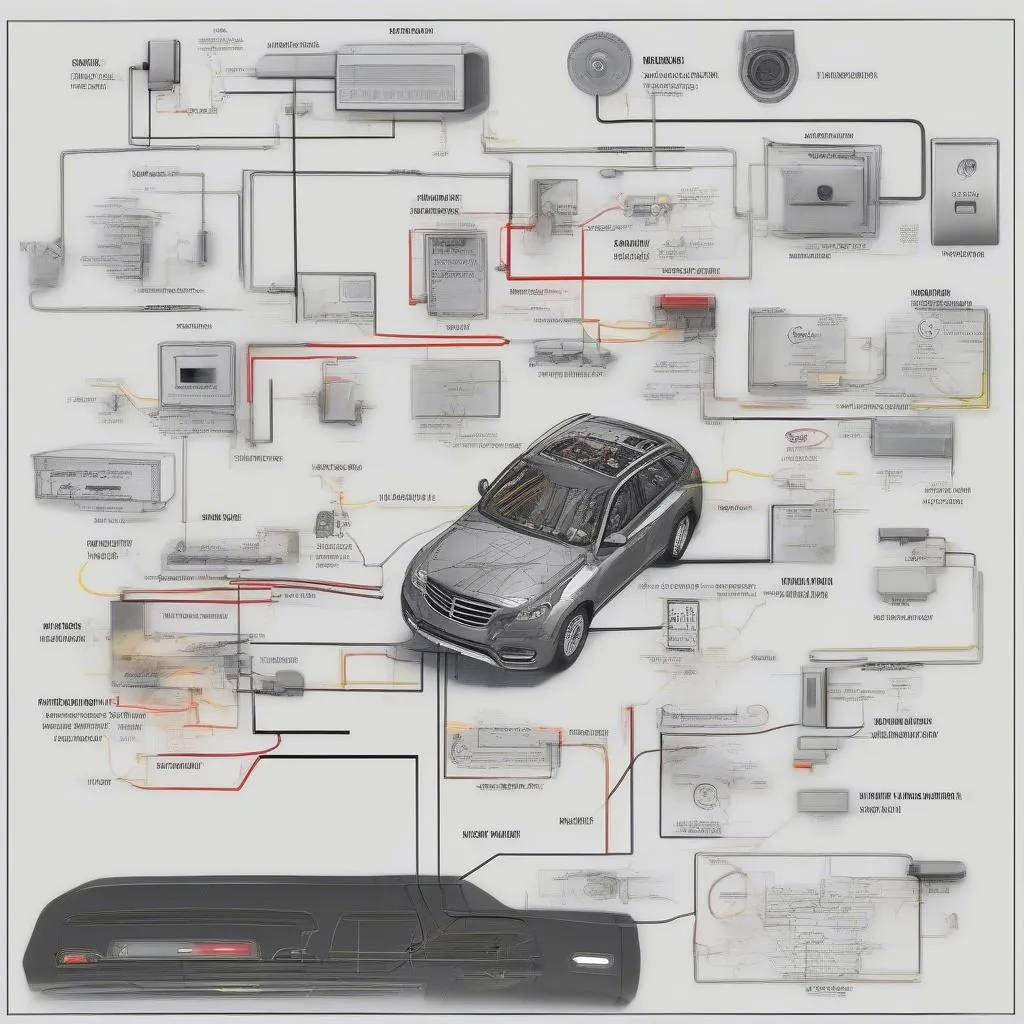Experiencing a brake warning light after changing your brake pads can be frustrating. This article will delve into the common causes of this issue, offer practical solutions, and guide you through the diagnostic process.
 Brake Warning Light Illuminated on Car Dashboard
Brake Warning Light Illuminated on Car Dashboard
Why is my brake warning light on after changing the pads? Several factors can contribute to this, ranging from simple oversights to more complex issues. Let’s explore the possibilities.
Common Causes of a Brake Warning Light
Low Brake Fluid Level
One of the most common culprits is a low brake fluid level. When brake pads wear down, the brake calipers need to extend further to compensate. This uses more brake fluid. If the fluid level isn’t topped up after changing pads, the warning light might illuminate. Checking your brake fluid is a simple process; locate the reservoir under the hood, ensure the level is between the minimum and maximum marks.
Worn Brake Sensors
Many modern vehicles have brake pad wear sensors. These sensors are small wires embedded within the brake pad material. As the pads wear down, the sensor eventually makes contact with the rotor, completing a circuit and triggering the warning light. Replacing the brake pads often requires replacing the sensors as well. If your new pads didn’t come with new sensors, or if the sensors weren’t properly installed, the light will likely stay on.
 Worn Brake Pad Sensor Next to New Sensor
Worn Brake Pad Sensor Next to New Sensor
ABS Issues
The Anti-lock Braking System (ABS) is a crucial safety feature. A malfunctioning ABS module or a faulty wheel speed sensor can trigger the brake warning light. While less common after a pad change, it’s worth investigating if other issues coincide, such as unusual braking behavior. Diagnosing ABS issues typically requires specialized diagnostic tools.
Stuck Brake Caliper
A sticking brake caliper can cause uneven pad wear, overheating, and potentially trigger the warning light. If you notice one wheel hotter than the others after driving, a stuck caliper might be the issue.
Parking Brake Engaged
This may seem obvious, but sometimes the simplest explanations are the most likely. Ensure the parking brake is fully disengaged.
Troubleshooting the Brake Warning Light
- Check the Brake Fluid: Start with the easiest step. Ensure the brake fluid is at the correct level. Top it off if needed.
- Inspect the Brake Pad Sensors: Verify the sensors are correctly installed and connected. If they are damaged or missing, replace them.
- Check the Parking Brake: Confirm the parking brake is fully released.
- Inspect the Brake Calipers: Check for any signs of sticking or leakage.
 Mechanic Checking Brake Fluid Level
Mechanic Checking Brake Fluid Level
“A common mistake DIYers make is neglecting to check the brake pad sensors,” says automotive expert, John Davis, ASE Certified Master Technician. “These sensors are crucial for proper brake system function.”
If the simple checks don’t resolve the issue, it’s time to seek professional help.
When to Seek Professional Help
If you’ve exhausted the basic troubleshooting steps and the light persists, it’s time to consult a qualified technician. They have the expertise and tools to diagnose more complex problems, such as ABS malfunctions or internal brake system issues.
“Don’t ignore a persistent brake warning light,” warns automotive specialist, Sarah Miller, Automotive Technology Instructor. “It’s a crucial safety indicator that shouldn’t be dismissed.”
If you’ve recently had issues with your car battery, you might find these resources helpful: reviving a dead car battery, if your battery is dead. A failing battery can sometimes cause unexpected warning lights. Also, if you use a battery tender, be sure to check out battery tender dead battery in case you suspect issues with your tender. If your car drains battery immediately after charging or if my car battery keeps dying overnight, there could be underlying electrical issues affecting other systems in your vehicle.
Conclusion
Addressing a brake warning light after changing pads is essential for ensuring your safety and the proper function of your vehicle. While some causes are easily remedied, others require professional attention. Don’t hesitate to seek expert help if the problem persists after initial troubleshooting. Ignoring a brake warning light can lead to more serious issues down the road.

